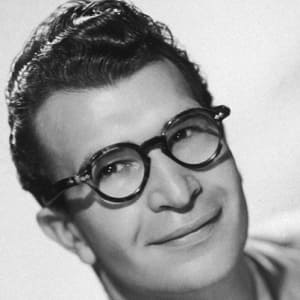
Stephen Peace
Brilliant, brash and a little wacky, J. Stephen Peace co-produced the cult horror film Attack of the Killer Tomatoes and, as a state legislator, oversaw energy deregulation in California.
Synopsis
Stephen Peace was born on March 30, 1953 in San Diego, California. Before entering politics, he co-produced the cult horror film Attack of the Killer Tomatoes. Elected to the California State Assembly at age 29, Peace earned a reputation as a maverick. In 1995, he chaired the Senate Committee on Energy, pushing deregulation, and was subsequently blamed for the state's energy crisis in 2001. In 2010, he successfully spearheaded a campaign for an open primary in California.
Film Career
James Stephen Peace was born to two educators in San Diego, California on March 30, 1953. A standout athlete at Bonita Vista High School, Stephen Peace began his political career as student body president. After high school, he enrolled at the University of California, San Diego, and majored in political science. After graduating, Peace joined some college friends and launched Four Square Productions.
Inspired by the B-movies they'd seen as teenagers, the group produced the now-infamous cult horror film Attack of the Killer Tomatoes! in 1978. The plot involves killer tomatoes revolting against humanity, attacking people and wreaking general havoc. Scientists discover the tomatoes are vulnerable to bad pop songs and save the day.
The producers' eccentricities more than the film's success prompted three sequels, Return of the Killer Tomatoes! in 1988 (which starred then-unknown actor George Clooney), Killer Tomatoes Strike Back! (1990) and Killer Tomatoes Eat France! (1991). In addition to screenwriting and production, Peace had parts in all but the final film of the Tomatoes series.
Political Career
During this time, Peace was on another "crusade," working as a state legislator in the California Assembly between 1982 and 1992. As a moderate Democrat, Peace wanted to make government work better. Together, with four other like-minded colleagues, Peace formed the "Gang of Five," occasionally voting with Republicans for a good law instead of an ideological one. However, he was punished for his "treason" by party leaders, who stripped him of committee posts and banished him to a smaller office. They even took away his parking space.
Smart and well-connected, in 1992, Peace rebounded by being elected to the California State Senate. Renowned as a policy wonk, he tackled mind-numbing issues with a laser focus and was notorious for his outbursts at colleagues who "just didn't get it." He authored a series of criminal justice reform measures with a "one-strike-and-you're-out" provision that significantly increased penalties for violent criminals.
From 1995 to 1997, Peace chaired the Senate Committee on Energy and oversaw the debate on deregulation, a process that became known as the "Steve Peace Death March." The bill finally passed and was signed by Republican Governor Pete Wilson.
In 2000 and 2001, California was hit with an energy crisis and Stephen Peace was blamed for it, even though he didn't write the bill. He countered the energy crisis was due to lax oversight by state and federal regulators and unscrupulous power companies. However, many voters considered him the father of deregulation, a moniker that probably doomed his chances for running for California Secretary of State in 2002.
Governor Gray Davis appointed Stephen Peace director of the California Department of Finance in 2002, and assigned him the unenviable task of trying to plug a $34.8 billion budget hole. However, Peace was not able to solve the budget crisis, and in 2003, Davis was recalled and replaced by Governor Arnold Schwarzenegger.
In Recent Years
In 2003, Peace left the public sector to be a senior advisor to the San Diego Padres Major League Baseball team. In 2010, he chaired the California Independent Voter Project, which successfully passed Proposition 14, the open primary measure. Under the law, voters can vote for any candidate of any party in an open primary. The top two vote-getters, regardless of party affiliation, go to the general election. The idea is to elect more centrist, pragmatic leaders who don't cater to the ideological extremes. And thus, Stephen Peace continues his crusade for just and honorable government.




